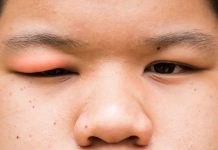Menopause is the end of your menstrual cycles. The term is sometimes used to describe the changes you go through just before or after you stop having your period, marking the end of your reproductive years. Menopause usually happens around age 50.
Menopause Causes
Women are born with all of their eggs, which are stored in their ovaries. Their ovaries also make the hormones estrogen and progesterone, which control their period (menstruation) and the release of eggs (ovulation). Menopause happens when the ovaries no longer release an egg every month and menstruation stops.
Menopause is a regular part of aging when it happens after the age of 40. But some women can go through menopause early. It can be the result of surgery, like if their ovaries are removed in a hysterectomy, or damage to their ovaries, such as from chemotherapy. If it happens before age 40, for any reason, it’s called premature menopause.
Menopause Symptoms
First signs of menopause
Most women nearing menopause will begin experiencing vasomotor symptoms (VMS). The most common is hot flashes. During a hot flash there is a sudden feeling of warmth that spreads over the upper body, often with blushing, a racing heart, and sweating. These flashes can range from mild in most women to severe in others.
You may also notice other symptoms of menopause such as:
- Uneven or missed periods
- Vaginal dryness
- Sore breasts
- Needing to pee more often
- Trouble sleeping
- Emotional changes
- Dry skin, eyes, or mouth
- Fatigue
- Depression
- Crankiness
- Headaches
- Joint and muscle aches and pains
- Weight gain
- Hair loss
- Changes in libido (sex drive)
What Happens During Menopause?
Natural menopause isn’t caused by any type of medical or surgical treatment. It’s slow and has three stages:
- Perimenopause. This phase usually begins several years before menopause, when your ovaries slowly make less estrogen. Perimenopause lasts until menopause, the point at which your ovaries stop releasing eggs. In the last 1 to 2 years of this stage, estrogen levels fall faster. Many women have menopause symptoms.
- Menopause. This is when it’s been a year since you had a period. Your ovaries have stopped releasing eggs and making most of their estrogen.
- Postmenopause. These are the years after menopause. Menopausal VMS such as hot flashes and night sweats usually ease. But health risks related to the loss of estrogen increase as you get older.
What Conditions Cause Premature Menopause?
Your genes, some immune system disorders, or medical procedures can cause premature menopause. Other causes include:
- Premature ovarian failure (or primary ovarian insufficiency). When your ovaries prematurely stop releasing eggs, for unknown reasons, your levels of estrogen and progesterone change. When this happens before you’re 40, it’s called premature ovarian failure. Unlike premature menopause, premature ovarian failure isn’t always permanent.
- Induced menopause. This happens when your doctor takes out your ovaries for medical reasons, such as uterine cancer or endometriosis. It can also happen when radiation or chemotherapy damages your ovaries.
Menopause Complications
The loss of estrogen linked with menopause is tied to the following health problems that become more common as women age.
After menopause, women are more likely to have:
- Bone loss (osteoporosis)
- Heart disease
- Bladder and bowels that don’t work like they should
- Higher risk of Alzheimer’s disease
- More wrinkles
- Poor muscle power and tone
- Weaker vision, such as from cataracts (clouding of the lens of the eye) and macular degeneration (breakdown of the tiny spot in the center of the retina that is the center of vision)
Source: webmd.com










